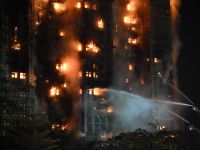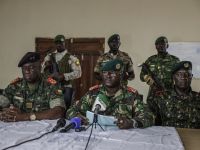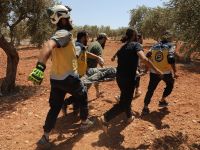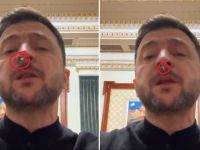Israel arrested two Palestinian political leaders, one day before Israeli Defence Minister, Binyamin Ben Eliezer meets with Palestinian interior minister Abdel Razaq al-Yahya.
The Israeli army nabbed three members of the Popular Front for the Liberation of Palestine (PFLP) in the West Bank city of Ramallah, two of them prominent political leaders, Palestinian security sources said Tuesday.
"This means Israel is continuing its policy of assassination and arrests to weaken the PFLP, because it is the second most important faction in the PLO and because it is a faction which will prevent Israel from implementing its vision of a political and security solution," senior PFLP official Kaid al-Ghul told AFP.
"It is no coincidence that this happened on the anniversary of the assassination of Abu Ali Mustapha," he said.
Israeli troops also detained three members of Hamas Tuesday, as well as another 10 suspected activists in Ramallah, Nablus and Hebron. An armed Palestinian was also caught near the northern West Bank town of Qalqilya, an Israeli army spokesman said.
Security talks
Meanwhile, Yahya said he would meet in Tel Aviv Wednesday with Ben Eliezer to discuss a plan under which Israeli forces would gradually leave reoccupied areas as Palestinian security forces took control of them.
Security commanders discussed the plan in a meeting late Monday. Israel has balked at extending the move from the West Bank town of Bethlehem, which it evacuated last week, to Hebron, citing security risks.
Poll
In a poll conducted in the West Bank and Gaza last week by the Palestinian Center for Policy and Survey Research, a large majority of 84% said they supported fundamental reforms of the Palestinian Authority, while 69% said they backed the appointment or election of a Palestinian prime minister. 1,320 local Palestinians participated in the poll.
A large percentage of 85% of the Palestinians believes that corruption exists in PA institutions, and among those, only 30% are convinced that the efforts of the finance minister to unify PA revenue and expenditure operations would eliminate financial corruption. Only 25% of the Palestinians have confidence in the new government’s ability to reform internal conditions and deal with Israel, and only 34% believe that the government has the intention to implement the One-Hundred Day Program for political and financial reform
On the matter of President Arafat’s future role, opinion was divided. Participants were asked if they believe the political structure in the Palestinian Authority should be changed so that a prime minister would be the most powerful leader, leaving President Arafat in just a ceremonial role. 48% of the Palestinians said they opposed such steps, while 44% said they supported such a change.
American President George Bush has called on the Palestinian people to replace their leadership, widely understood to mean he wants Arafat replaced. European countries and the Palestinians have opposed this demand, saying it was up to the Palestinians, not the Americans, to decide on the leadership of the Palestinian nation.
The popularity of Palestinian President Yasser Arafat was stable at 34%, compared with 46% before the Palestinian uprising against Israeli occupation began in September 2000. Marwan Barghouthi, a popular leader of the uprising and head of Arafat's Fatah faction in the West Bank who is currently imprisoned by Israel and on trial on charges of orchestrating violence, has enjoyed a rise in popularity. Barghouthi is seen a as potential successor to President Arafat, and his popularity rose to 23% in August from 11% in December 2001.
Large gains in popularity have been made by the Islamic militant groups such as Hamas and Islamic Jihad, which have been the driving force behind the suicide bombing attacks against Israelis. Public support for these groups has risen to 27%, up from 17% before the uprising. At the same time, the poll showed that the support for President Arafat’s Fatah fell to 26%, from 37% before the uprising.
In line with this position, the Palestinian public also expressed a strong support for the continuation of suicide attacks. 53% said they opposed internal efforts to halt suicide attacks in their uprising, while 43% percent approved of the move. The percentage of support for such attacks - 52% - was identical with the attitude of a similar poll held last May, while it stood at 58% in December 2001. (www.albawaba.com)
© 2002 Al Bawaba (www.albawaba.com)







